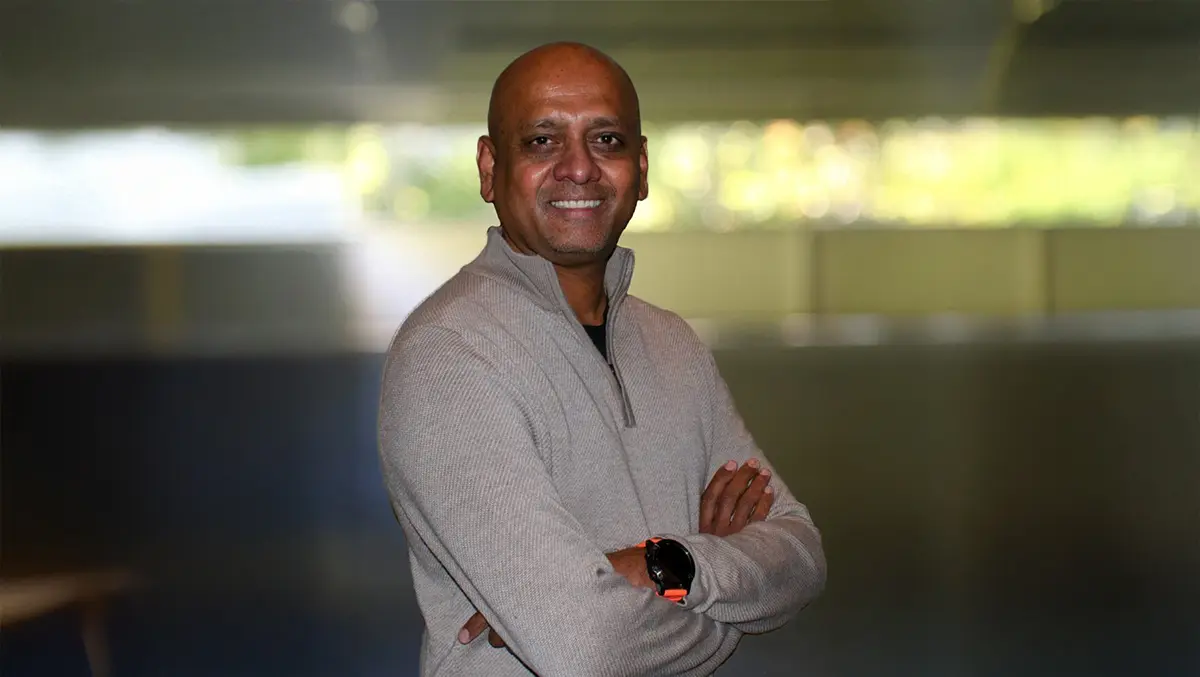
Exclusive: Dell’s Satish Iyer on AI innovation, startup partnerships and what comes next
In the fast-evolving world of artificial intelligence, few executives have their finger on the pulse of innovation quite like Satish Iyer, Vice President for Innovation & Ecosystem at Dell's Office of CTO/AI. He is responsible for AI strategy and nurturing partnerships across the startup landscape.
Iyer's perspective is shaped by a rare blend of experience at both industry giants and nimble startups.
Having spent years at companies like Cisco and Nokia and running his own ventures, Iyer says this combination has given him a unique lens for evaluating new technology.
"When you are a startup, you are actually solving a very specific problem in the best way possible," he explained during an interview at Dell Technologies World in Las Vegas.
"Having a bigger company, you have a wider lens, a bigger aperture to look at things, and you also see how some of those technologies can fit broader problems within a bigger company." This experience, he added, is invaluable when assessing whether a startup's product can survive in a large enterprise context.
At Dell, Iyer's team employs a two-pronged framework for scouting strategic fits for the company's AI Factory. "One is, we kind of start bottom up, more like technology stack," he said. "We look for areas where we have a gap and need a partner."
The second approach is use-case driven: "We say, okay, we want to solve a particular problem for enterprise using AI. Who are the best partners to support that use case, top down?" Iyer cited the company's recent public partnership with Glean as an example of a use-case-led approach.
Dell recently unveiled significant AI infrastructure updates, opening up fresh opportunities for startups to plug into its ecosystem. According to Iyer, the upgrades are anchored in two main areas: supporting ever-growing model tokenisation and laying the groundwork for the next wave of agent-based AI.
"The number of tokens processed is going to be much, much higher, and higher the tokens you need higher capacity," he said. "The newest class of hardware gives you more capacity, more tokens." Just as importantly, these advances are designed to support the rise of autonomous agents. "As you have more agents, more autonomous agents talking, you need infrastructure and ecosystems to support some of that," he added.
But what truly grabs Iyer's attention when a Silicon Valley founder walks into the room? "Any founder who actually talks about a problem they solve for a customer, instead of saying, I have the best platform, gets my attention," he explained. "If they start saying, 'I worked with a bank and did this for them, and this is the result,' then I'm interested. Starting with a pain point and how they addressed it - that's attractive."
TechDay asked about the balance between collaborating with and acquiring startups. Iyer explained that Dell's approach is multi-faceted. "Dell Technologies Capital will do their own scouting. They identify areas, have segments, and look for companies independently. If there is a portfolio company Dell can take advantage of, we'll go partner with them."
"Outside of that, when we identify companies we think are interesting, and in some cases want a solution with them, we'll make those calls if we see a lot of traction."
As AI agents and edge inferencing develop quickly, Iyer sees challenges ahead for startups needing to interoperate. In particular, agents need to communicate and work collectively within enterprise environments. "If agents have to survive within an enterprise, they have to have a way to collectively do this and federate across each other," he said.
Startups specialising in NPUs, GPUs, and optimised chipsets for AI PCs and edge solutions are well-placed to benefit from Dell's latest offerings.
"There is quite a bit of specialised chipset vendors doing cool things, and a lot of application vendors too," Iyer said. He highlighted the opportunity for innovations that keep power consumption low and support local inferencing on devices. "Everybody wants to take advantage of that - running a local LLM, making decisions on the laptop, without going back to the cloud."
Beyond technology, building trust and value with startups means tackling customer problems together. "Being a great partner and solving mutually a lot of customer problems, that automatically gives you a level of commitment," he said. Early-stage investment is also key. "Dell ventures are very early investors. They do a lot of A and B rounds, not late. By that definition, they are always looking for making strategic bets early."
Academic partnerships also play a critical role. "We work closely with universities. There's a lot of traffic between academia and startups in the Bay Area. Being involved in academics gives us a window early on," he explained.
When it comes to pitches, Iyer is quick to switch off if the story isn't clear. "If you're not able to tell a simple story, you start going into the platform and the features and this... I think that's a turn off. The problem is, it shouldn't be technology for technology's sake."
So what keeps him excited about the job? "You learn. There's constant learning," Iyer said.
"Working with startups who are big risk takers, it's an idea factory. That's the best part."
Looking ahead, Iyer is most curious about the possibilities of quantum computing.
"Quantum is coming. There's a lot of experiments happening. I'd like to see where quantum takes us, because I think that can be massively game changing," he said.
